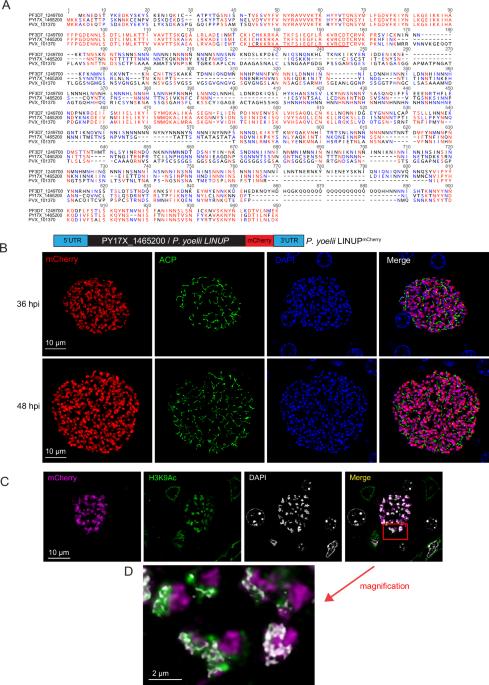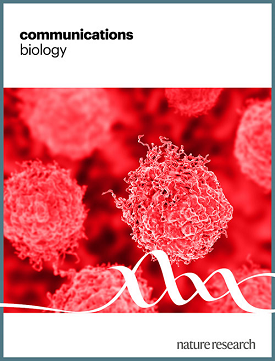A conserved Plasmodium nuclear protein is critical for late liver stage development
IF 5.2
1区 生物学
Q1 BIOLOGY
引用次数: 0
Abstract
Malaria, caused by Plasmodium parasites, imposes a significant health burden and live-attenuated parasites are being pursued as vaccines. Here, we report on the creation of a genetically attenuated parasite by the deletion of Plasmodium LINUP, encoding a liver stage nuclear protein. In the rodent parasite Plasmodium yoelii, LINUP expression was restricted to liver stage nuclei after the onset of liver stage schizogony. Compared to wildtype P. yoelii, P. yoelii LINUP gene deletion parasites (linup—) exhibited no phenotype in blood stages and mosquito stages but suffered developmental arrest late in liver stage schizogony with a pronounced defect in exo-erythrocytic merozoite formation. This defect caused severe attenuation of the liver stage-to-blood stage transition and immunization of mice with linup — parasites conferred robust protection against infectious sporozoite challenge. LINUP gene deletion in the human parasite Plasmodium falciparum also caused a severe defect in late liver stage differentiation. Importantly, P. falciparum linup — liver stages completely failed to transition from the liver stage to a viable blood stage infection in a humanized mouse model. These results suggest that P. falciparum LINUP is an ideal target for late liver stage attenuation that can be incorporated into a late liver stage-arresting replication competent whole parasite vaccine. A conserved Plasmodium protein, specific to the liver stage and localized in the nucleus of liver stage schizonts, plays a critical role in liver stage development and differentiation.

一种保守的疟原虫核蛋白对肝脏晚期发育至关重要。
疟疾是由疟原虫引起的,给人们的健康造成了巨大的负担,目前正在研究将减毒活寄生虫作为疫苗。在这里,我们报告了通过删除疟原虫 LINUP(编码肝脏阶段的核蛋白)来创建基因减毒寄生虫的情况。在啮齿类寄生虫疟原虫yoelii中,LINUP的表达仅限于肝分裂期开始后的肝阶段细胞核。与野生型疟原虫相比,疟原虫 LINUP 基因缺失寄生虫(linup-)在血期和蚊期没有表现出任何表型,但在肝期分裂后期发育停滞,外红细胞裂殖体形成明显缺陷。这种缺陷导致肝阶段向血阶段过渡的过程严重减弱,用 linup - 寄生虫免疫小鼠可对传染性孢子虫挑战产生强大的保护作用。人类寄生虫恶性疟原虫的 LINUP 基因缺失也会导致肝脏后期分化的严重缺陷。重要的是,在人源化小鼠模型中,恶性疟原虫 LINUP - 肝阶段完全不能从肝阶段过渡到有活力的血阶段感染。这些结果表明,恶性疟原虫 LINUP 是肝晚期衰减的理想靶标,可以将其纳入肝晚期抑制复制的全寄生虫疫苗中。
本文章由计算机程序翻译,如有差异,请以英文原文为准。
求助全文
约1分钟内获得全文
求助全文
来源期刊

Communications Biology
Medicine-Medicine (miscellaneous)
CiteScore
8.60
自引率
1.70%
发文量
1233
审稿时长
13 weeks
期刊介绍:
Communications Biology is an open access journal from Nature Research publishing high-quality research, reviews and commentary in all areas of the biological sciences. Research papers published by the journal represent significant advances bringing new biological insight to a specialized area of research.
 求助内容:
求助内容: 应助结果提醒方式:
应助结果提醒方式:


